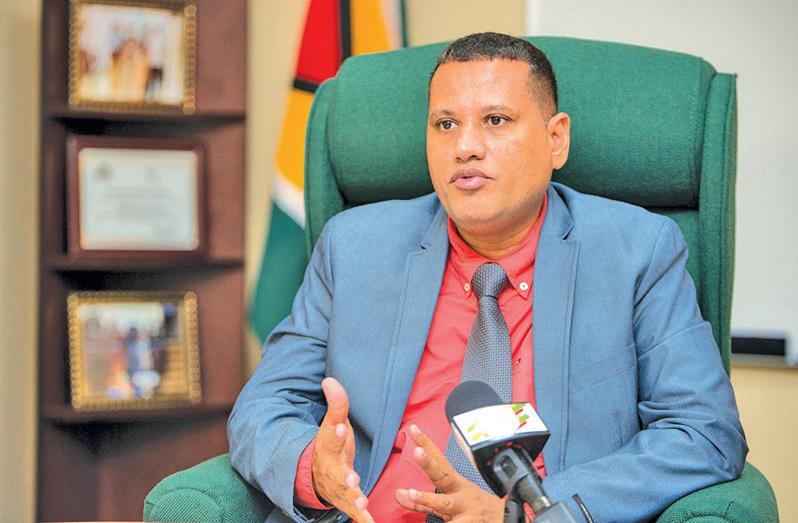
21 minute read
Guyana wins plaudits in P US Report on
Was WaltonDesir racist?
Ihave held off to date from commenting on the remarks of Ms Walton-Desir that HAVE precipitated such a heated debate on race and racism in Guyana. On a social media discussion with David Hinds, attempting to explain voter behaviour in Guyana, Ms Desir divided them into “PPP voters and PNC voters”. After the storm erupted, Ms Desir asserted that she never spoke about “Indian and African Guyanese”. While she did not do so explicitly, even if Ms Desir were not an attorney who studied defamation, she knows that if ordinary Guyanese listening to her Ravi Dev could identify who she was referring to, then it’s rather disingenuous to sustain her denial. So, let’s move on.
What did Ms Desir say? Pertinently, that PPP voters are “a bunch of mentally lazy people” for whom “the burden of sorting things out for themselves is too great” and they remain “trapped and in bondage”. “Contrastingly” she asserted, “supporters of the PNC are far more inquisitive, and enquiring and who have a greater appreciation of the democratic process.” The question, therefore, is whether this statement is “racist”? It certainly is, since, at a minimum, it attributes an impaired mode of thinking to a whole group of people based on their race (Indian-Guyanese). In contrasting this racial group with another racial group, African-Guyanese, whom she claims are superior in their thinking process, Ms Desir removes all doubt as to the import of her statement about Indian-Guyanese. It was, and is, racist.
The irony is that Ms Desir’s evaluation of Indian- Guyanese voting behaviour is a rather inelegant statement of what political scientists have discovered as far back as the 1960s - but applying to all voters. Using research drawn from psychology on the limits of rationality when applied in everyday decision making, they came up with the notion of “bounded rationality” and the use of “heuristics” or shortcuts in voter decision-making. They explicitly explained that it had nothing to do with being stupid or “mentally lazy” as Ms Desir proposed. Back in the 1990s, Prof Michael Dyson used the concept as the “Black Utility Heuristic” to explain Black Americans’ voting patterns. He postulated that the heuristic was related to their knowledge of their condition, and one of the elements of their heuristic was the acknowledgement of a “linked fate” as a group. From this perspective, their behaviour was quite rational. These are matters I have written on extensively over the years to explain Guyanese voting by the major ethnic groups.
All Guyanese, being humans, utilise heuristics to make decisions in politics and in life. I have proposed that because of their lived experience, which had sedimented to make them perceive their linked fates ethnically, the structural bases of the heuristic for the major ethnic groups are their “Ethnic Security Dilemmas”. And the “knowledge” that actuates them is embodied in the narratives each group have about themselves and other groups. Ms Desir was merely regurgitating the heuristics from her “ethnic group’s” narrative. As I wrote to Vincent Alexander a few months ago in our discussion on the subject, African-Guyanese stressed their “earlier westernization”, of which Ms Desir’s rationality and democracy are integral elements.
I continued that “The Indian-Guyanese narrative, on the other hand, proposed that they saved the sugar industry – and hence Guyana as a viable entity – since a peasant economy could not generate the funds necessary to maintain the hydraulics”. That they remained rural bound to accomplish this task and away from “westernization” longer allowed African Guyanese to inflict epistemic violence on them with the claim that they were “mentally lazy” and “not rational”
So yes, Ms Desir was being racist in her explanation some claim, not intentionally so. I agree, yet she uttered words that made an entire group of fellow Guyanese feel insulted, her intention does not matter. And in fact, it is privileging her as the perpetrator of the racist statement to make that exculpatory argument rather than focusing on the feelings of the persons who have been harmed.
I conclude with what I had told Vincent: “notwithstanding our several ethnic orientations and truths, we have to craft a common narrative that infuses a Civic Guyanese nationalism to deliver justice and equity through its institutions to all Guyanese.”
We must be careful with our words in Guyana; they have consequences.

SUNDAY, MAY 16, 2021 | GUYANATIMESGY.COM Guyana wins plaudits in US Report on religious freedom
…says Govt continues to promote religious tolerance & diversity
Guyana has won plaudits in the United States’ (US) latest report on religious freedom, which quoted religious leaders as saying that the Guyana Government has been consistent in trying to promote religious tolerance and diversity.
According to the report, the Government has presided over a pluralistic society where the three denominations, Christians, Muslims and Hindus, live in relative harmony. Additionally, it was noted that the Constitution itself provides for freedom of religion and worship, including the right to choose and change one’s religion.
Another observation of the report is the schooling system, which it noted features no religious education in public schools even if the school is religious affiliated. However, there are different rules for private religious schools.
“There are both public and private religiously affiliated schools. Private schools are operated entirely by private groups and are not funded by the State. All students attending private religious schools must participate in religious education, regardless of a student’s religious beliefs,” the report said.
Meanwhile, it was further observed that the Government itself has interactions with all religious faiths. Reference was made to December, when Minister of Culture, Youth, and Sports Charles Ramson said he was focused on ensuring public observances of national holidays were religiously diverse, while having members of different religious groups participate actively in national celebrations.
“He also said he was committed to holding a dialogue with all religious organizations to better understand their needs and concerns. Government representatives continued to meet with leaders of various religious groups to promote social cohesion and discuss tolerance of diversity, including Muslim, Hindu, and Christian groups.”
“Government officials also participated regularly in the observance of Christian, Hindu, and Islamic religious holidays throughout the year. The Government continued to declare some holy days of the country’s three major religious groups, including Eid al-Adha, Holi, Easter, and Diwali, as national holidays,” the report said.
Mention was also made of the representatives of the Rastafarian community, who continued to complain that a law criminalising the possession of marijuana infringed on their religious practices. It is something that the People’s Progressive Party (PPP) has made significant progress in addressing since coming to power last year.
“In September, at an interfaith roundtable, a representative of the council said the group would be advocating with the newly installed Government to decriminalise marijuana possession for religious purposes. The council also asked for international support to lobby the Government,” the report said.
“In December, the Cabinet approved a decision to amend the law to remove custodial sentencing for small amounts of marijuana. It also said it was deliberating on the quantity that would not mandate custodial sentencing.”
During a press conference last year, Attorney General Anil Nandlall had said the removal of custodial sentencing for small amounts of marijuana is a manifesto promise the PPP/C Administration intends to keep. (G3)







SUNDAY, MAY 16, 2021 | GUYANATIMESGY.COM
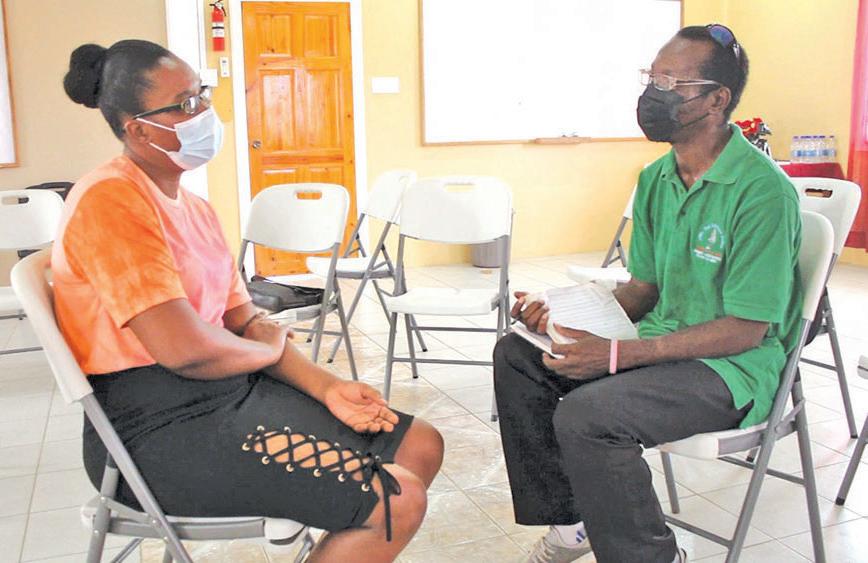



Guyana Times Berbice correspondent Andrew Carmichael interviewing Yonelle Lewis
By Andrew CArmiChAel
Violence against women is one of the issues that has reached an epidemic level in Guyana. Though there are efforts to have that addressed, it seems as though every time we take a step forward, we get pulled four steps back.
The battle is constant and relentless.
The United Nations estimates that almost one in three women have been subjected to some form of violence in their life. The major perpetrator of the violence is quite often their intimate partners, ex-husbands or boyfriends.
With the COVID-19 pandemic and limited moving around, women still living with abusive partners are even more at risk of being abused.
Abuse not only affects the direct victim but also those around them, especially if there are children around.
In Guyana, violence against women is forever on the table and there are numerous interventions but the it seems as though we are yet to even begin curbing it. Women are constantly being killed or maimed and it is true that the reported numbers far exceed the reality.
The Sunday Times recently sat down with mother of three and domestic violence survivor, 42-year-old Yonelle Lewis who shared her story with us.
Lewis is now dependent on friends for food and other essentials after walking out of an abusive relationship with her three children. She left after she was hospitalised from some of the physical abuse meted out to her.
Abuse is not a notion that is foreign to Lewis because it has been something she experienced from her early days. Her parents were the first perpetrators of violence against her. She was the eldest child, which meant a lot of the responsibilities fell on her and when she fell short, it was hell.
Her other siblings did not suffer the same fate since they received much love and caring from her parents. They were spared the rod, she was not.
“I was abused from a very early age by my mother and father then I got married at the age of 17 years because my mother said I was too much for her to handle. As a child coming up, I was the Cinderella girl. I had to do everything. I had to do all of the work and then if I don’t do it, I will get licks. At one point my mother even chopped me because of not finishing what I was supposed to have finished in time,” she related.
While this may sound familiar to a lot of people, to a lesser extent, it does not mean that it should be normal. Those experiences have shaped Lewis’s outlook of life and she thought that the abuse was normal.
When she got married at the age of 17, the then young woman thought that she was leaving the abuse behind but little did she know, life was going to deal her another wrong hand. After getting married, she realised that the events in her life were familiar to what she thought she left behind.
She had to be cooking and cleaning for her inlaws.
“I got married but that became another challenge because I have to deal with him, his mother and sisters.”
Her husband was not providing financially for her and was seldom at home.
“Sometimes I see him only at night and when he comes, he only wants sex.”
She explained that the marriage got to a point where they only had sexual intercourse if her husband paid her for it.
“Because he wasn’t giving me money and that was the only way I could get money and could eat. I went months without eating proper meals,” the woman revealed.
That marriage lasted for seven years and resulted in one child.
After she left that marriage, Lewis had no job and no means of providing for her child since the father was not doing so. She needed someone to depend on and that was when another man stepped in. Initially, things were going well in that relationship and she thought that she was now in a place where she could be happy and not face constant beatings, taunting and deprivation of basic necessities.
“After 7 years of living in hell, I left that relationship and I got involved in other relationships which did not work out well because he was also abusive to me.”
That second relationship resulted in another child but ended after her partner started using illegal drugs and had a mental breakdown.
She subsequently left and went back to her father, who was living with her new stepmother. There, she was advised to reunite with her husband and acted on the advice, but it did not work out.
Again, the then mother of two, found herself entangled with a new lover. Lewis said she remained single for four years but after experiencing some medical problems, she was advised by her doctor to have a partner. Acting on the doctor’s advice, Lewis met a man who later sent her to the hospital with a broken jaw.
Quite a large number of relationships start on Valentine’s Day, but Lewis said hers ended on Valentine’s Day.
“I ended up in the present relationship I was in from 2015, but we started living together four years ago until he started hitting me. It was twice and the recent encounter left me with a fractured jawline.”
She was hospitalised for a week and moved out two days after.
However, she never filed a Police report because she “didn’t want a story.”
“I was ashamed that if this gets out it would cause problems for me and the kids because I was still living with him. But when I came out of hospital there was another woman in the house. So, I spoke with my friend and I left knowing there is no turning back. So, I am encouraging women not to accept violence of any form from a spouse.
“There is help for them. Just like I came out of it, they can also come out of it. There are people that they can reach out to, they just need to take the first step,” Lewis advised.
She is currently being supported by friends.
“Had it not been for them, I might be on the streets. One friend is paying my rent presently and I am looking to do something on my own as a woman. I want to take care of my own kids.”




Teen Toshao Jason Caitan

By Lakhram Bhagirat
Jason Caitan came into the spotlight just a few days ago when he was elected Toshao of Shea Village at just the age of 19. Shea Village is located just about 100 miles from the township of Lethem in the Upper TakutuUpper Essequibo Region. It is accessible by dirt road and is approximately 9 miles from the picturesque Kanuku Mountains.
With a population of just over 450 persons, Shea Village is a primarily farming community and home of the Wapichan tribe.
It held its elections for Toshao on Tuesday and elected Caitan – a simple young man raised by his single mother – to be its leader for the next three years.
Caitan is the third child of teacher Vilma Caitan and lived his entire life in Shea Village. There, he learned the value of community and being together despite differences. He was educated, until primary, in Shea and then secondary in the village of Aishalton.
“I went to secondary school in Aishalton. I wrote CXC there and I succeeded with 7 subjects. I have 6 brothers and 1 sister and I graduated so now I am back here in my village again helping and leading the people of Shea here,” he said.
In a recent conversation
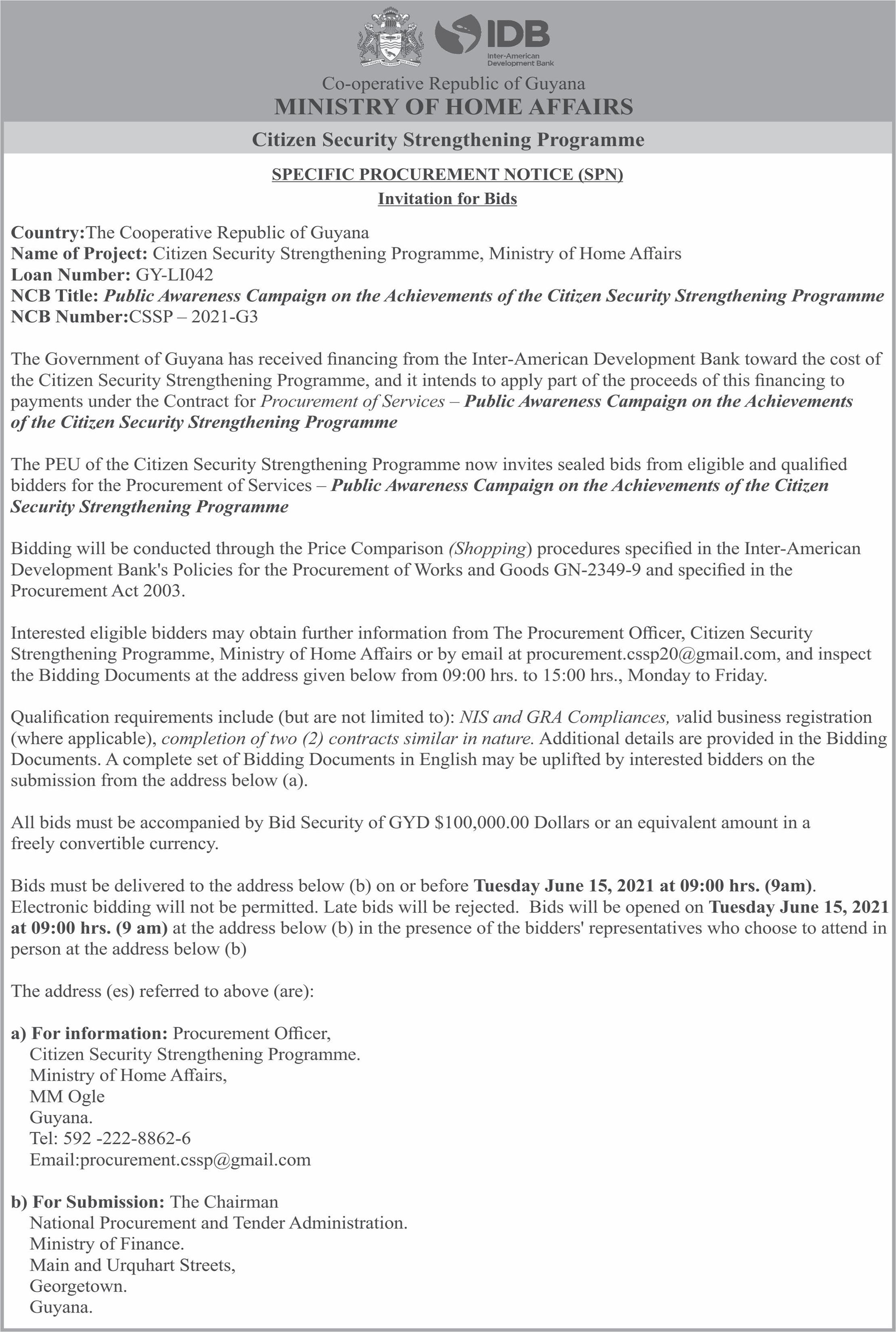
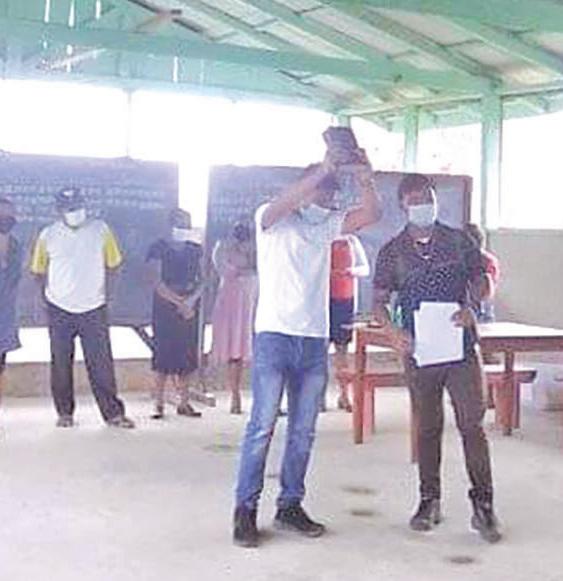
with the Sunday Times, Caitan spoke about life in Shea and outlined his plans to further develop the village so that the residents can have an enhanced quality of life.
Recounting his childhood, the young Toshao said that growing up in Shea is the best experience one can hope to have. The entire village comes together and cares for each other without expecting anything in return.
However, in spite of being in a village that cared, his mother still struggled to raise him and his siblings.
“It wasn’t an easy task for my mother to raise 7 children in the family. We had challenges growing up and although it wasn’t entirely financial because she is a teacher at the school here there was always others. My brothers attended different schools and it was difficult for her to handle all of her work and then the responsibilities of raising us,” he explained.
The decision to throw his hat in the ring for the leadership of the village was one he did not make easily. Caitan thought about what being Toshao meant and the responsibilities attached to that position.
“I was involved in most of the activities here in the village and most of the people said that you should run for Toshao so they encourage me. I had to make the decision to take that position and it was successful. It was not an easy task to think about running for the post. I wanted to make sure that I understand everything about what it is about to be Toshao,” he said.
He ran against one of the elders in the village and secured 76 votes.
Caitan is taking over the village at a time when COVID-19 further complicates things but according to him, it is a challenge he is ready to take up. The young man said that thus far, Shea has been COVIDfree and he intends to keep it that way.
“Here we didn’t have any cases so far and we are very happy about that and most of our villagers have taken the COVID vaccines and we are waiting on the second dose. I am very glad that SRDC (South Rupununi District Council) and the organisations are helping with COVID hampers,” he said.
When asked to outline some of the things he and his Council hope to achieve for the three years, Caitan said that first they can put forward plans but the village need to collectively agree on how those plans should be executed.
However, he said that there are some things he hopes to see happening immediately and explained: “For Shea Village, I look at the elderly persons and my plans are to help them immediately. We need to provide what they need because, for example, some of them are unable to [do] hard work because of various reasons and they have no one to help around. They cannot go to the farm or to look for food so we need to focus on helping them and providing them with the things they may need at home. We also need to work on better access to the pension for the pensioners because they need that money as well.
“I looked at the farmers also because all of us here in this village are farmers and we depend on our products to provide a living from that. I looked at the road to the farm, the water and the bridges needed to be put in place.

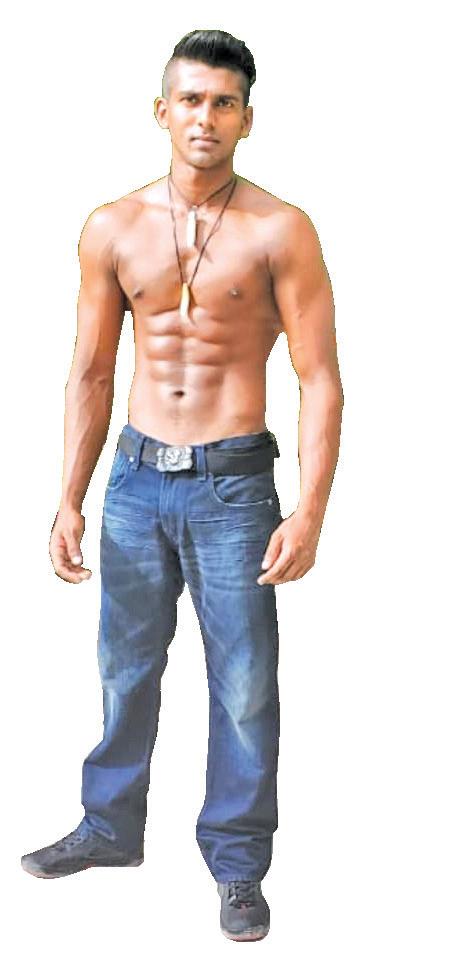
By Lakhram Bhagirat
Calisthenics – derived from the Greek works “kalos” which means beauty and “stenos” meaning strength – was developed in ancient Greece.
Men’s Health website says, “calisthenics is a form of fitness which utilises gravity and bodyweight leverage to challenge your fitness level.”
Initially, calisthenics was a method of promoting health in school children but has since transformed into a something that has allowed fitness training for any person. The method of working out can quite often be miscategorised as gymnastics/acrobatics since they share a lot of similarities.
However, unlike gymnastics, calisthenics can be practiced outdoors and is often dubbed as the “street workout” according to Men’s Health.
“The 2017 study, ‘The effects of a calisthenics training intervention on posture, strength and body composition’, by scientists from the Sport and Exercise Sciences research unit at the University of Palermo, Italy, found that calisthenics training is an effective training solution to improve posture, strength and body composition without the use of any major training equipment. The study took 28 men and divided them into two groups. One group practised calisthenics for eight weeks, while the other group continued with their normal workout routines. After eight weeks, all of the participants underwent a body composition analysis, a postural assessment, a handgrip test and a press-up and pull-up test.
The researchers discovered that the men who trained calisthenics had improved their posture and lowered their fat mass, while the number of press-ups and pull-ups they were able to do had increased, even though their calisthenics training didn’t include these specific exercises. In contrast, the group who continued with their normal training routines didn’t really improve on what they could do before they eight weeks had begun,” Men’s Health wrote in a 2020 report.
With the world in a pandemic at this time and large gatherings advised against, there are numerous persons turning to calisthenics to stay fit.
In Guyana, though, a limited mumber of persons dedicate their workout routines to calisthenics but it was not an uphill task to find one.
If you are an avid social media user then you sure would have come across videos of Veda Kumar Bissoondyal, or “Akash Lee” as he is known, doing extraordinary workouts. His videos are daring and many compare him to martial art actor Jet Li because of the sheer grace and “daredevil-ness” of his moves.
The 22-year-old hails from Vigilance on the East Coast of Demerara (ECD) and has always had a passion for fitness. At the age of 16, he got into juggling, martial arts and acrobatics.
Like many, he did not just wake up one day and start doing advanced calisthenics. Rather it has been a long and hard journey for him.

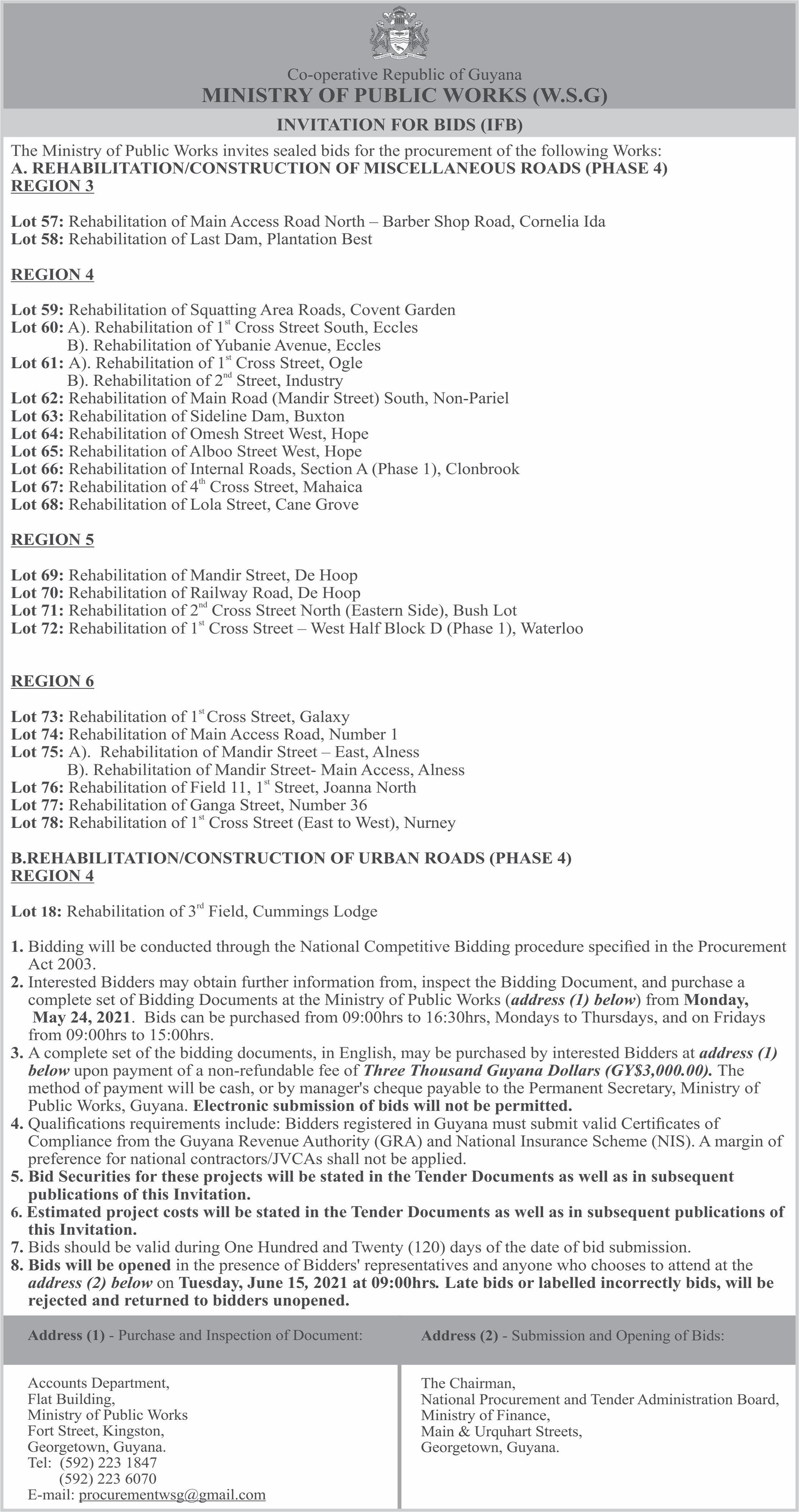
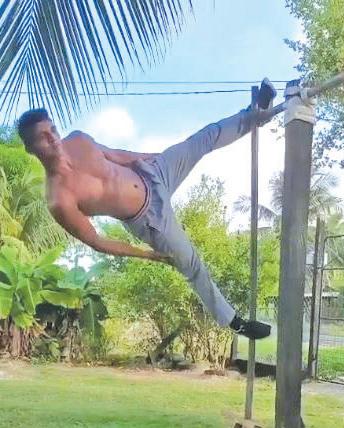

Veda Kumar Bissoondyal doing one of his workout routines
FROM PAGE 15
“For me, some of the techniques was difficult for me but other than that it was easy for me but practice makes perfect. If you like something then you try to do it and that has been how it is for me. I have learned everything for me and it is now fun.
The more I train, the better I get at it. It was fun taking challenges and I got my secret is that before I get anything done is to visualise the technique and go with a positive mindset and do it and get it done. I am more excited to do more difficult techniques so I am never out of training and my growth is not stunted. Calisthenics have allowed me to push my body to its limits,” Bissoondyal said.
The young man trains at least three times per week and incorporates a number of disciplines. He would, from time to time, pull his little brother in on his workouts as well. Bissoondyal hopes to one day open his own gym so that he can impart the knowledge he has gained on his journey to others.
To keep fit, he not only works out his body but also his mind as well. He also maintains a strict vegetarian diet.
“My advice to persons who want to learn calisthenics is to have a positive mindset, discipline, concentrations, inner strength and always be yourself. You have to express yourself, have faith in yourself and work hard to achieve what you want.”

FROM PAGE 14
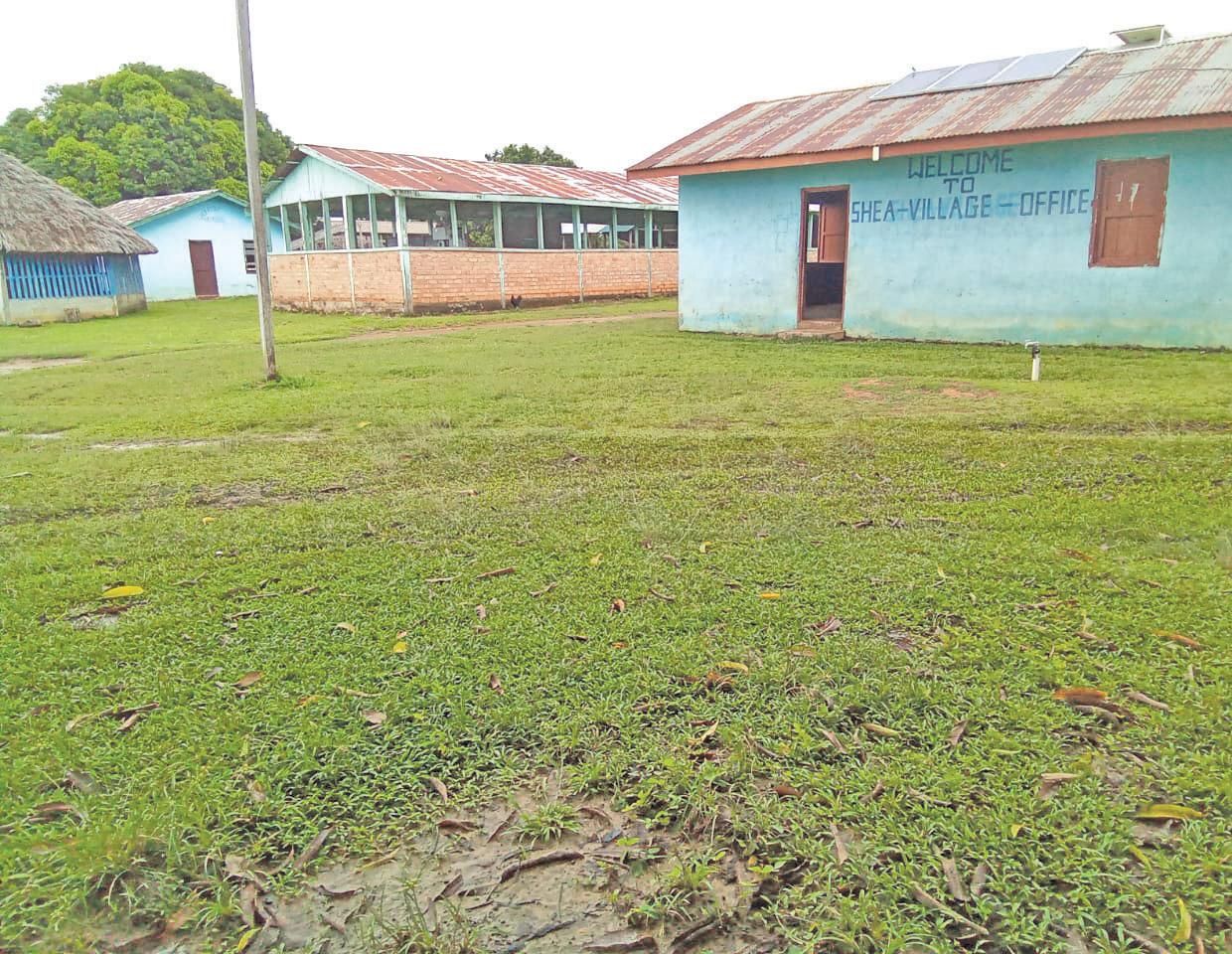
The Shea Village Council’s Office
We will be clearing out some road to the farms so that farmers can have a proper way of going to the farm because sometimes they have a hard time to get to the farm due to the road or the water being high. We will be clearing out some bushes and putting up bridges as well.”
Toshao Caitan also had some advice for Indigenous youth on taking up leadership roles: “Take up the responsibility to be a leader of yourself first. Attend meetings and workshops that can develop your skills and self confidence and once you are confident in yourself then you can be in a good position to take up those leadership roles.”



